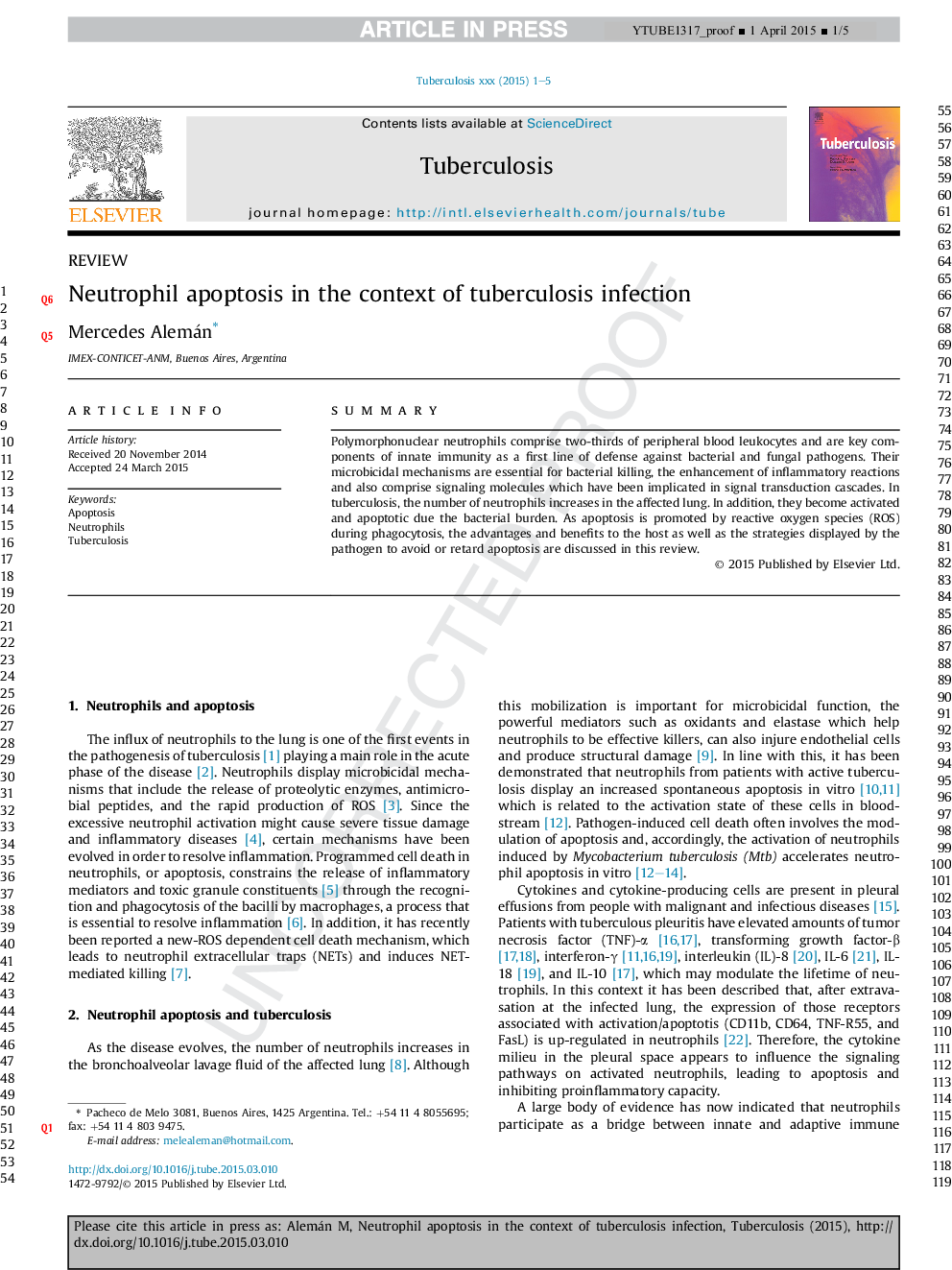| Article ID | Journal | Published Year | Pages | File Type |
|---|---|---|---|---|
| 10962013 | Tuberculosis | 2015 | 5 Pages |
Abstract
Polymorphonuclear neutrophils comprise two-thirds of peripheral blood leukocytes and are key components of innate immunity as a first line of defense against bacterial and fungal pathogens. Their microbicidal mechanisms are essential for bacterial killing, the enhancement of inflammatory reactions and also comprise signaling molecules which have been implicated in signal transduction cascades. In tuberculosis, the number of neutrophils increases in the affected lung. In addition, they become activated and apoptotic due the bacterial burden. As apoptosis is promoted by reactive oxygen species (ROS) during phagocytosis, the advantages and benefits to the host as well as the strategies displayed by the pathogen to avoid or retard apoptosis are discussed in this review.
Keywords
Related Topics
Life Sciences
Immunology and Microbiology
Applied Microbiology and Biotechnology
Authors
Mercedes Alemán,
